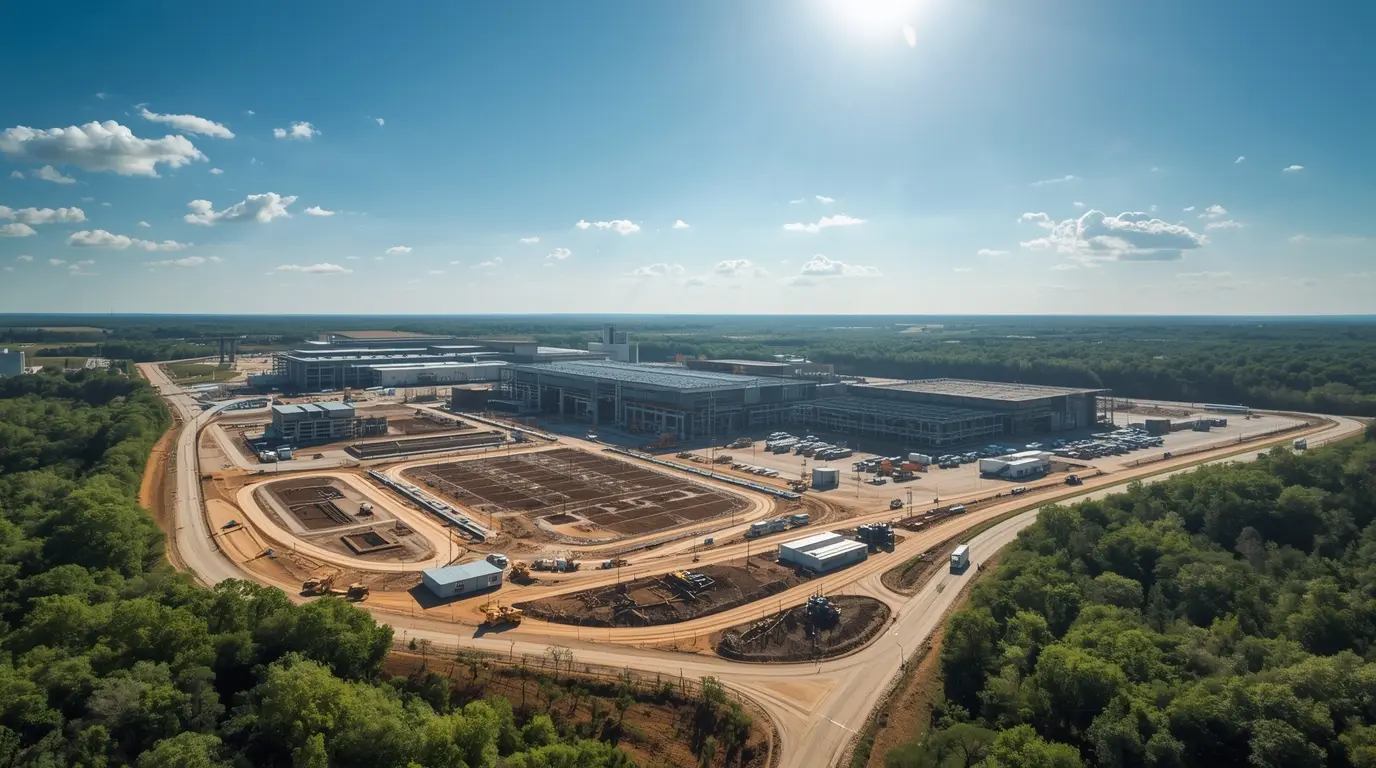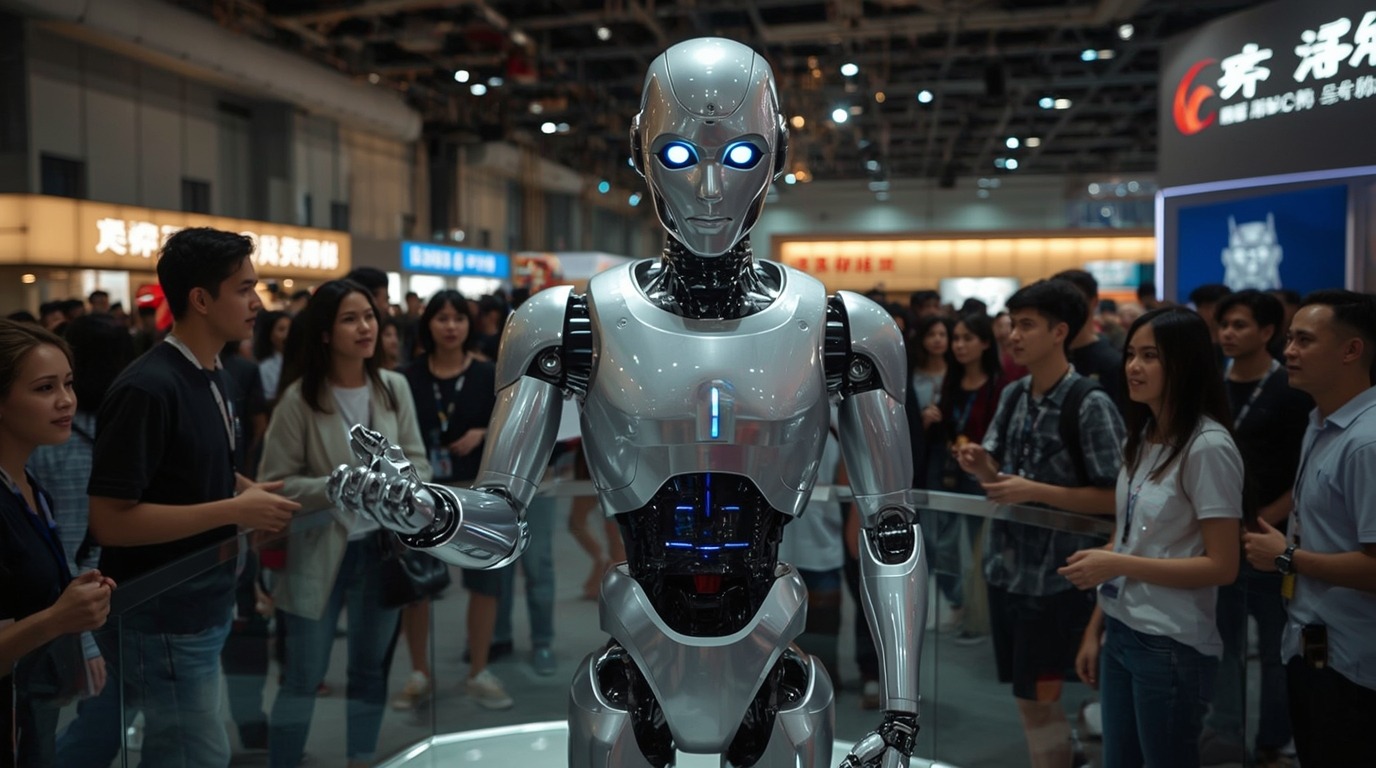Introduction
Hyundai’s huge electric vehicle battery factory in Georgia is running into major delays after the biggest single-site immigration raid in U.S. history. Hyundai’s CEO, José Muñoz, said Thursday the plant’s opening will be pushed back by at least two to three months. The delay follows the detention of 475 workers at the construction site. This major setback now threatens the Korean company’s $7.6 billion spend to build electric vehicle production facilities in Georgia and shows the growing friction between federal immigration actions and the drive to expand U.S. manufacturing.
The battery plant, built in partnership with LG, is seen as a key piece of Hyundai’s electric vehicle growth plans for North America. The factory opening this year would have made the site one of Georgia’s largest-ever economic wins, promising thousands of manufacturing jobs and turning the area into a major electric vehicle hub. Now those benefits hang in the balance, sparking diplomatic strain and raising fears that future foreign money in U.S. manufacturing may be at risk.
The Big Immigration Raid in Georgia
On September 4, 2025, ICE agents raided the Hyundai-LG battery factory site in Ellabell, Georgia, grabbing national headlines. 475 workers—more than 300 from South Korea—were stopped and taken away. This is now the biggest single-site immigration operation ever by the Department of Homeland Security, making it a new benchmark for workplace enforcement.
Inspection teams focused on employees of the battery plant’s suppliers and subcontractors, not on the main Hyundai-LG operation itself. The New York Times seen records showing that a good number of detainees had come in on B-1 or B-2 visitor visas, while a smaller share were in the U.S. under the visa waiver program. In one standout case that officials documented, ICE acknowledged that a worker had broken no visa rules, yet they still ordered the person to leave, labeling it a “voluntary departure.”
The recent enforcement action has added friction to US-Korea relations, coming only a few days after President Lee Jae-Myung’s visit to the Oval Office, where he and President Trump announced a $150 billion wave of new South Korean investment into the US. In Seoul, government sources conveyed concern and regret, and President Lee cautioned that incidents of this type are likely to “deter foreign investment into the US marketplace.”
Why Hyundai Turned to Foreign Specialists
Hyundai’s decision to bring in South Korean specialists for the build-out and startup of the company’s US battery plant matches a common strategy in the auto and battery sector. During a recent presentation, company President and CEO José Muñoz told reporters, “When these plants are built, the schedule is ultra-tight, and you require a small army of specialists. In the US, some key skill sets and the very targeted tools just aren’t available at the scale or the speed you need,” referring to the precision technology used in battery-cell assembly.
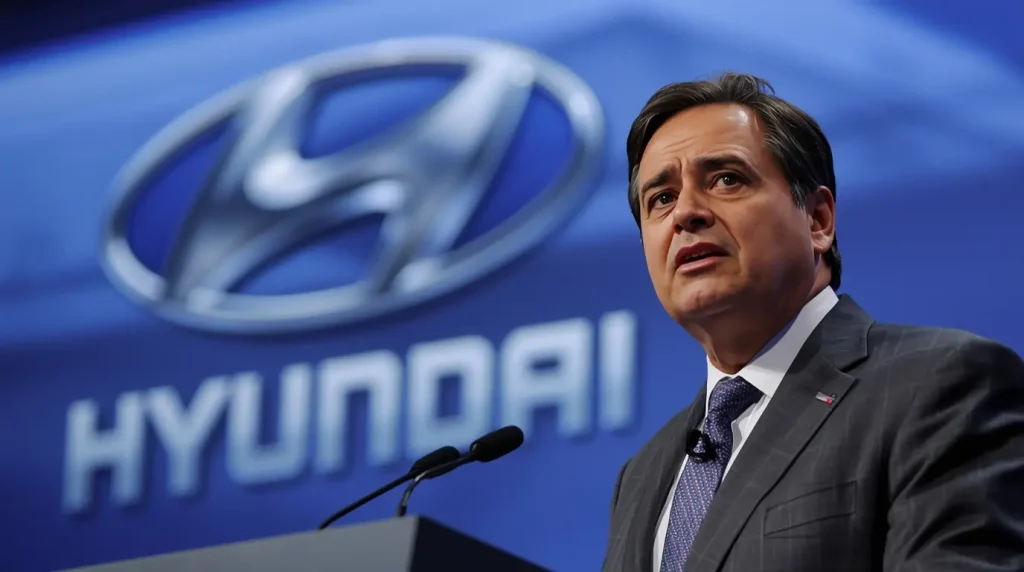
Installing battery production equipment requires skills you usually find only with the engineers and technicians who build the machines themselves. These experts usually come from the companies that make the sophisticated systems needed for making electric vehicle batteries. They are on-site for three to six months, installing, calibrating, and testing the systems. After that, they train local staff to run the machines. This pattern is particularly strong in the electric vehicle battery sector, where Asian companies have held most of the market and have been learning the trade for decades.
Bringing these workers to the U.S. is tough mainly due to visa rules. Immigration lawyers say that firms have turned more to B1 business visas since categories like H-1B have become tougher to get. The B1 route is allowed for certain short-term business tasks, but the rules are not always clear about what engineers can do, leaving companies in a legal gray zone as they rush to set up operations.
Immediate Impact on Hyundai’s Operations
Hyundai’s Georgia operations are taking a serious hit right now. Company official Muñoz said the new battery plant will be pushed back by at least two to three months. The delay comes from hundreds of specialized workers suddenly gone and the fact that many top engineers are now hesitant to come back to the U.S. after such a high-profile immigration crackdown.
To keep car production on track, Hyundai will use batteries from existing plants until the new LG joint-venture building opens. The company will pull cells from another Georgia facility that it shares with battery-maker SK On. The good news is that the immigration operation did not touch Hyundai’s nearby car-assembly plant, which is still rolling out the all-electric IONIQ 5 and IONIQ 9.
The effects of the raid are spreading. According to Reuters, people at other LG battery plants, including the joint facility with GM, were sent home after the Georgia operation. That situation points to a chilling trend, as many automakers and suppliers are now reviewing how many foreign experts they use on U.S. soil.
Broader Implications for Foreign Investment in the U.S.
Hyundai’s raid in Georgia has forced an uncomfortable spotlight on the U.S. investment climate, especially for Asian firms key to next-gen tech, like electric-vehicle batteries. South Korean firms are already planning more than 22 new plants on U.S. soil, and now many are reassessing how they operate before they break ground.
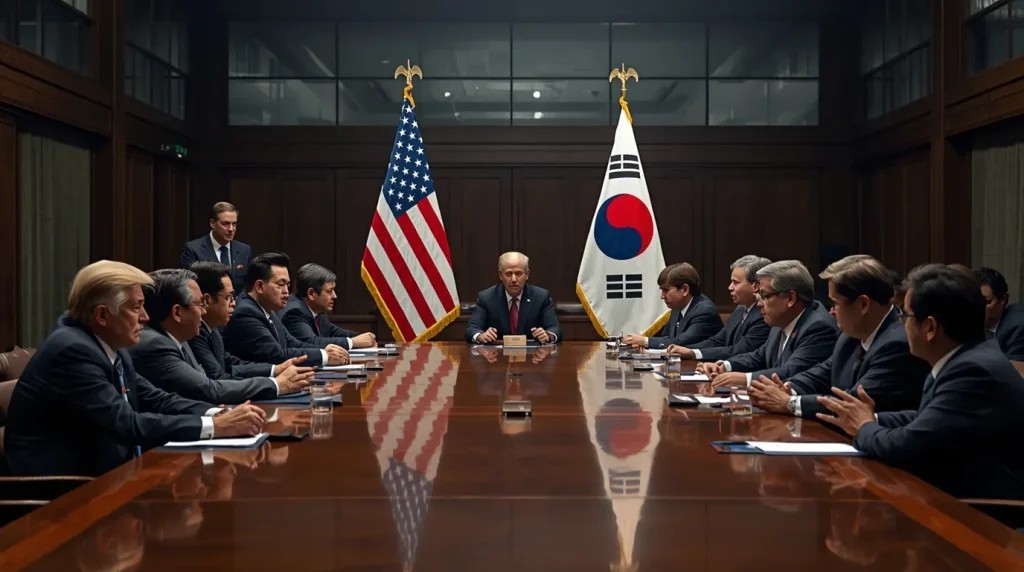
This episode exposes a growing contradiction in U.S. economic strategy. The federal government talks big about rolling out the red carpet for billions in foreign manufacturing—money the Trump administration has touted to South Korean, Japanese, and EU investors. At the same time, the same administration has pushed harsh immigration and workplace enforcement. The contradiction creates a chilling effect on firms that depend on highly skilled and mobile personnel, raising doubts about long-term U.S. viability as a manufacturing hub.
Economic analysts caution that this recent enforcement action may cool foreign investment in the U.S. “What Hyundai certainly understands and what all international investors take away is that assets in this country feel decidedly less safe,” explains Dean Baker, an economist with the Center for Economic and Policy Research. Baker’s view was mirrored by South Korea’s president, who argued that if the present visa system is reversed, establishing plants in the U.S. would “become harder,” likely leading firms to re-evaluate the entire project.
Reality of Business Visas is Often Murky
The widening Hyundai spotlight has shone on the opaque and sometimes contradictory foreign business-visa framework. A review of U.S. immigration-reports by The New York Times found that the majority of apprehended employees arrived on B1 or mixed B1/B2 authorizations, which technically permit stays for under half a year to conduct business. In practice, the B variant is frequently relied upon for project management, technical support, and short-term scientific work that can’t be done remotely.
Immigration attorneys keep saying the guidelines on B1 visas are still fuzzy, even months later. Jongwon Lee, based in Duluth, Georgia, works mostly with South Korean firms. He asks the obvious question: “Should I consider a guy who installs software and trains others how to run the machines a ‘consultant’ or not? No one has an answer. No memos, no briefings, no court rulings to guide us.”
With the rules remaining unsettled, firms have no choice but to keep moving across a map with no markers, leaning on rules that seem to change depending on who’s in charge. Under the Trump administration, a tough on immigration stance made the confusion sting even more, forcing companies to keep guessing about what’s still allowed.
Local Perspectives and Community Impact
The immigration sweep and its fallout have exposed the split in Georgia over the planned Hyundai plant. Officials on the state and local level call in the project a jackpot for the region—a $2 billion reward that, on paper, comes mostly from taxpayer-funded incentives. Yet not every neighborhood feels that way. Many residents say the job offers come with strings they cannot accept, leaving them to question who’s really winning from the investment.
In Savannah—a city where over half the people identifying as Black—leaders are taking a closer look at hiring practices at the new battery plant and neighboring factories. Jamal Toure, who teaches at Savannah State, put the worry into words that many share. “At first, the message is that we should cheer for this project because it will bring jobs. Then we’re told that, because our people lack certain training, we must bring in workers from elsewhere. So the question is, where is the gain for our community?”
Concerns deepen from the difference between short-term construction jobs and long-term factory jobs. Many in the community hear about a project “hiring now,” only to learn that the roles are for installing equipment that won’t last past the factory’s ramp-up phase. “The skills that will last—those are the roles that do not have the numbers in Savannah’s current labor pool,” the company response said. Hyundai’s statement highlights a mix of one-time and permanent growth, noting that over half of the assembly line jobs have gone to Black workers but that the ramp team is drawn from specialized contractors.
Path Forward for Hyundai and Other Manufacturers
As Hyundai and other manufacturers head into 2024, finding the right balance between their pressing need for specialized global expertise and ever-changing U.S. immigration rules remains the steepest uphill climb. Hyundai’s CEO, José Muñoz, sums it up succinctly, insisting: “The U.S. is strategically important for the mid- to long-term, and our investment plans continue.” Still, he adds a cautionary note: “The current situation needs to be resolved to be able to go fast.” Without faster clarity on visa pathways, U.S. plants risk remaining on the slow track.
A three-pronged plan looks like the most realistic path. First, companies must ramp up on-the-job apprenticeships and work-based learning for U.S. talent. This is a slow fix, as it can take 18 months to prepare a worker to fill a specialized role. Second, faster policy guidance on temporary business-visitor visas, plus the creation of a new visa class for short-term assembly and commissioning teams, could ease bottlenecks and let lines start faster. Lastly, both South Korean and U.S. diplomats continue to discuss faster pathways for knowledge workers, a topic that remains alive even after earlier workers were released and allowed to go home.
Though the South Korean technicians were sent back intact, tensions between competing policy goals reappear after each new wave of visa denials. By keeping policy discussions open, Washington and Seoul officials say they intend to scale up visa backlogs while closing pathways to abuses, clearing a window for Hyundai and other companies to innovate and grow unimpeded. innovation.
Conclusion
The raid at Hyundai’s Georgia battery facility—and the production delays that followed—spotlights the tricky crossroads where U.S. immigration policy, economic growth, and global supply chains meet. This operation snag has postponed Hyundai’s plans to ramp up electric vehicle production in the U.S., raising broader concerns about how welcoming the business climate will remain to foreign firms.
While Hyundai scrambles to get the plant back on track, the episode warns other overseas firms eying new projects in the U.S. The challenge of protecting American job seekers—while giving companies the skilled workers they sometimes can only recruit from abroad—remains unresolved.
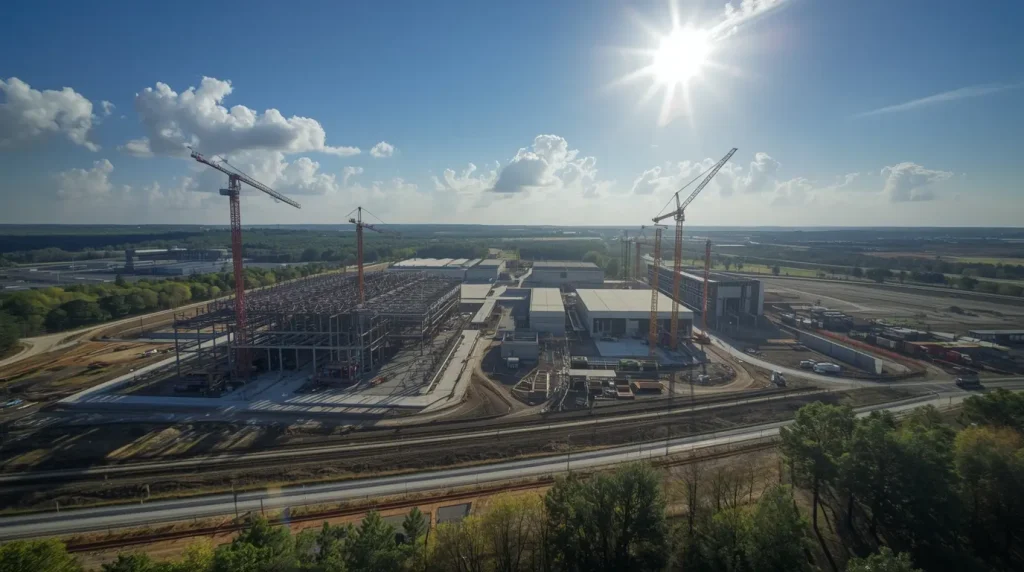
Exactly how the raid will affect Hyundai’s huge Georgia outlay in the long run remains cloudy. Still, the automaker’s recent public vows to remain committed to the U.S. market show that its long-term plans, at least for now, are solid. The way these immigration and investment debates are settled will influence how quickly and how broadly other foreign companies expand their advanced manufacturing footprints in the United States over coming years.
Source: https://edition.cnn.com/2025/09/11/business/hyundai-raid-plant-delay-ceo
For more incredible stories of everyday news, return to our homepage.

